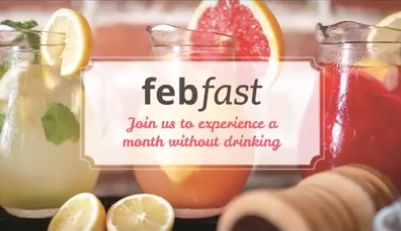FebFast 2015 to tackle NZ's rape culture

The New Zealand Drug Foundation is partnering with Rape Prevention Education for FebFast 2015, which will challenge participants to experience the month of February without drinking while raising funds to combat sexual violence.
"A year or so ago we were shocked by the Roastbusters case, which highlighted New Zealand's disturbing rape culture and the role alcohol plays in that," says Ross Bell, executive director of the New Zealand Drug Foundation. "In order to do something about this, we asked Rape Prevention Education to partner with us during Febfast. We're happy to say they agreed."
"Young New Zealanders do not get clear information over what is and isn't consent," says Rape Prevention Education executive director Dr Kim McGregor. "The funds raised by FebFast will enable us to deliver more specialist sexual violence prevention programmes that teach young people about sexual violence."
The programmes are tailored to provide young people with skills about respectful relating, personal safety, bystander intervention, identifying and dealing with potentially harmful behaviour and help seeking.
"Every $10,000 raised would provide approximately 170 students with the whole 4 week BodySafe programme. Each student would receive 4 modules, delivered by 2 specialist educators travelling to their school to deliver the programme in-class," Dr McGregor says.
2015 will be the fifth time the Drug Foundation has run FebFast. In that time over 2000 people have participated and more than a quarter of a million dollars has been raised to combat alcohol and drug harm.
Registration is free this year, and participants can sign up at www.febfast.org.nz.
"People who have completed the FebFast challenge tell us that not only do they feel healthy, lose weight and save money, they also feel good about making a positive difference to the lives of the people they raise money for," says Mr Bell.
"The work that RPE does to reduce the number of instances of alcohol-assisted sexual violence aligns perfectly with the Drug Foundation's goal of minimising drug harm. We're delighted to be partnering with them to equip young people with the information they need to keep safe."
Recent news

Beyond the bottle: Paddy, Guyon, and Lotta on life after alcohol
Well-known NZers share what it's like to live without alcohol in a culture that celebrates it at every turn

Funding boost and significant shift needed for health-based approach to drugs
A new paper sets out the Drug Foundation's vision for a health-based approach to drug harm

Expert Pharmac committee recommends funding for overdose reversal nasal spray
The expert committee has said funding for naloxone in the community should be a high priority

